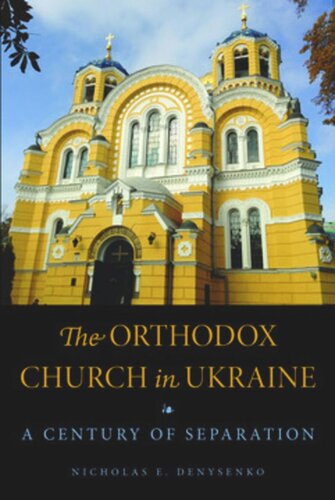

Most ebook files are in PDF format, so you can easily read them using various software such as Foxit Reader or directly on the Google Chrome browser.
Some ebook files are released by publishers in other formats such as .awz, .mobi, .epub, .fb2, etc. You may need to install specific software to read these formats on mobile/PC, such as Calibre.
Please read the tutorial at this link: https://ebookbell.com/faq
We offer FREE conversion to the popular formats you request; however, this may take some time. Therefore, right after payment, please email us, and we will try to provide the service as quickly as possible.
For some exceptional file formats or broken links (if any), please refrain from opening any disputes. Instead, email us first, and we will try to assist within a maximum of 6 hours.
EbookBell Team

5.0
28 reviewsThe bitter separation of Ukraine's Orthodox churches is a microcosm of its societal strife. From 1917 onward, church leaders failed to agree on the church's mission in the twentieth century. The core issues of dispute were establishing independence from the Russian church and adopting Ukrainian as the language of worship. Decades of polemical exchanges and public statements by leaders of the separated churches contributed to the formation of their distinct identities and sharpened the friction amongst their respective supporters. In The Orthodox Church in Ukraine, Nicholas Denysenko provides a balanced and comprehensive analysis of this history from the early twentieth century to the present. Based on extensive archival research, Denysenko's study examines the dynamics of church and state that complicate attempts to restore an authentic Ukrainian religious identity in the contemporary Orthodox churches. An enhanced understanding of these separate identities and how they were forged could prove to be an important tool for resolving contemporary religious differences and revising ecclesial policies. This important study will be of interest to historians of the church, specialists of former Soviet countries, and general readers interested in the history of the Orthodox Church.